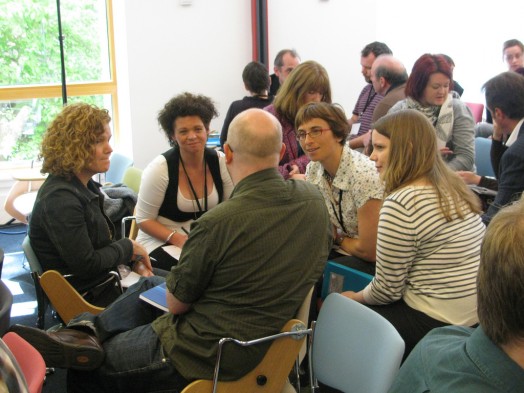Education: it’s a key word when we talk about diabetes. Patients need to know more, to be equipped with the necessary tools to look after themselves. This focus on education no doubt explains why structured education courses such as DAFNE and DESMOND are considered a core part of diabetes management in the UK.
And yet more and more people are dropping out.There’s evidence to suggest that they’re generally beneficial, usually leading to improvements in blood glucose monitoring, attitudes towards diet and exercise, and glycaemic control. Studies also suggest that they reduce the incidence of complications and hospital admissions.[1]
So what’s going on? What’s causing this decreasing attendance over time? A study by Muili Lawal, published in Diabetes & Primary Care, aimed to find out by examining several past surveys. The study uncovered the following reasons, in order of prevalence:
1. A low perception of the seriousness of diabetes: The most common issue was simply that people didn’t think diabetes education was necessary or worth the time, and the fact that attendances are declining over time suggests that more and more people are perceiving diabetes in this way. This is a problem: the carb-counting and insulin administration lessons are really useful for improving diabetes control.
2. A low perception of the benefits of attending diabetes education: People don’t realise what they’ll learn and how it will help them, potentially because of bad marketing.
3. Logistics: Transportation issues, distance from venues and travel expenses were all reported as barriers. The sessions are often held at inconvenient times and locations, according to many people who responded to surveys.
4. Lack of publicity: People didn’t really know the courses were going on. This ties in with 2: people don’t know it’s happening and they don’t know what they’re going to learn.
5. Group environment: Does anyone really like talking in front of large groups of strangers? Many of the people responding to the surveys reported “negative feelings” about this aspect of the sessions, finding the group environment intimidating.
6. Work-related problems: Some people couldn’t take the time off work to attend the courses. This could be linked to 1 and 2: people might be more likely to make the sacrifice of taking time off work if they had a better idea of the benefits of doing so.
7. Previous unpleasant experiences with diabetes education: Some people were put off by experiences they’d had in the past, including insensitive interactions with healthcare professionals providing the classes, and didn’t really fancy going back for more.
8. Long waiting list: Some people considered the waiting list too long; the time it would take to receive the important information made it hardly worth doing so, they felt.
Which diabetes courses have you been on, and which did you find useful? Would you recommended a specific course to other people with diabetes? Let us know your thoughts and share your experiences on our forum poll.
Source: Lawal M (2014) ‘Barriers to attendance in diabetes education centres: A systematic review’ Diabetes & Primary Care 16: 299-306
[1] Cinar et al, 2010; Karakurt and Kasikci, 2012; Tang et al, 2006



